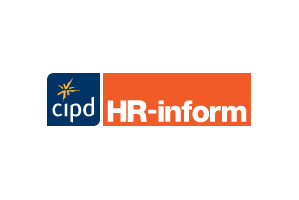Forthcoming legislation
New legislation
Enterprise and Regulatory Reform Act 2013
Provisions under the Enterprise and Regulatory Reform Act 2013 (ERR Act 2013) are coming into force in stages.
On 6 April 2014 Acas launched its early conciliation scheme, which applies to all employment tribunal claims brought on or after 6 May 2014 (for more information go to Employment tribunals ). Discrimination questionnaires were also removed from the Equality Act 2013 on this date (see Employment tribunals ) and tribunals were given the power to fine employers that breach employment rights where there are ‘one or more aggravating features’ (see Employment tribunals ).
October 2014
There are proposals in the ERR Act 2013 to introduce
- compulsory equal pay audits – for those employers that breach the equal pay provisions in the Equality Act 2010.
No date fixed
Some provisions in the Act have yet to be given definite enforcement dates:
- whistleblowing – a government call for evidence on the laws protecting those who blow the whistle closed on 1 November 2013. In April 2014 the government said it would be responding to this “shortly” but has yet to make any reform proposals.
- caste discrimination – provisions in the ERR Act 2013 will make caste discrimination unlawful under the Equality Act 2010. Consultations are planned for 2014, with a view to the new measures being in force by the summer of 2015 (see News ).
Children and Families Act 2014
This Act, stemming from the Modern workplaces consultation, introduces a new system of shared parental leave and extends the right to request flexible working. The legislation became law on 13 March 2014 and is coming into force in stages.
30 June 2014
- flexible working – the right to request flexible working (previously only for parents and carers) becomes available from 30 June 2014 to all employees with at least 26 weeks’ continuity of service. The statutory procedure for considering requests will be replaced by a duty on employers to consider all requests in a reasonable manner. Organisations will be able to refuse requests on business grounds. For more information see ‘ Right to request flexible working ‘.
1 October 2014
- ante-natal appointments – prospective fathers and partners will be given the right to take unpaid leave to attend two antenatal appointments from 1 October 2014 (see Paternity leave and pay ).
2015
Shared parental leave
- maternity/paternity – employed mothers and fathers/partners, both of whom meet the qualifying criteria, will be able to end the mother’s maternity leave and pay and share the balance as flexible parental leave and pay. The new right applies to parents of babies born on or after 5 April 2015. Existing rights to maternity and paternity leave and pay are unaffected. Mothers will still have two weeks’ compulsory maternity leave (four weeks for manual workers), but they can then share the remaining 50 weeks’ maternity leave and 37 weeks’ pay.
- adoption – the same rights to maternity leave and pay, and shared parental leave, will be available to adoptive and surrogate parents. One prospective adoptive parent can have five occasions of paid time off, and the other can have two occasions of unpaid time off, for pre-adoption contact visits.
- surrogacy – parents who have a child through a surrogacy arrangement will be entitled to take ordinary paternity leave pay and adoption leave and pay and shared parental leave and pay, provided that they meet the eligibility criteria. They will be allowed to take unpaid time off work (unpaid) to attend two antenatal appointments with the mother of the child.
Draft regulations are available on the government website .
Pensions auto-enrolment
Auto enrolment on pension schemes continues to be rolled out. Organisations come within the scope of the legislation by size, according to the number of employees they have on PAYE (see Staging date timeline at the Pensions Regulator website. Remaining compliance dates are:
| Number of employees | Date |
| 50 – 249 | 1 April 2014 – 1 April 2015 |
| > 50 | 1 June 2015 -1 April 2017 |
| New businesses from 1 April 2012 | 1 May 2017 – 1 February 2018 |









